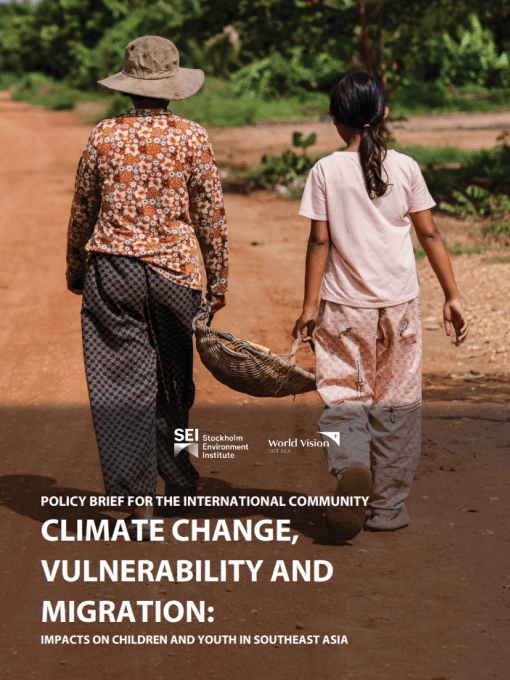Policy Brief: Climate Change, Vulnerability and Migration
Download
Climate change and environmental degradation have a profound impact on people, with the effects varying significantly based on socio-economic class, education, age, gender, race, (dis)ability, and other factors. Systemic injustices mean that the poorest and most vulnerable populations suffer the most, whether they are subsistence farmers losing crops to drought or entire communities being washed away by floods.
In Southeast Asia, generations have migrated in search of better opportunities, but as climate change increasingly strains rural livelihoods and drives families into debt, migration often becomes the only option. However, distressed migration frequently leads to abuse and exploitation, further complicating the lives of those seeking better prospects.
Migration also disrupts family dynamics, as parents working in cities or across borders often leave their children behind. Low-wage migrant workers face legal and logistical challenges in bringing their dependents with them, and irregular migration poses significant risks. Migrant workers typically endure long hours and harsh living conditions, while children who migrate often follow similar paths as adults, either traveling with their parents or migrating alone to support their families financially.
This policy brief highlights the findings of a study on the impacts of labor migration on children in the context of climate change in Southeast Asia, offering insights and recommendations for the international community, including donors, development partners, UN agencies, NGOs, and researchers. The study aims to shed light on the drivers of migration, the needs and aspirations of young people, and ways to support them effectively.